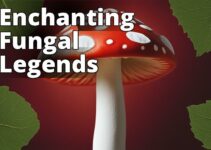Anxiety And CBD Usage
Anxiety is a common mental health condition that affects millions of people worldwide. It can cause feelings of unease, worry, and fear, making it difficult for individuals to cope with everyday life. Many treatment options are available for anxiety, ranging from therapy to medication. However, an alternative approach that has gained significant attention in recent years is the use of CBD.
CBD, short for cannabidiol, is a natural compound derived from the cannabis plant. Unlike its counterpart, THC, CBD does not have psychoactive effects, meaning it does not make users feel “high”. Instead, CBD interacts with the body’s endocannabinoid system to promote a sense of calm and relaxation.
How CBD Works for Anxiety
The exact mechanisms by which CBD reduces anxiety are still under investigation. However, researchers believe that CBD’s interaction with the endocannabinoid system plays a crucial role. The endocannabinoid system is responsible for maintaining homeostasis in the body, regulating various functions such as mood, sleep, and appetite.
When CBD is consumed, it binds to cannabinoid receptors in the brain and peripheral nervous system. This interaction is believed to modulate serotonin levels, a neurotransmitter known to influence mood and anxiety. By enhancing serotonin signaling, CBD may help alleviate anxiety symptoms.
Moreover, CBD also activates receptors such as vanilloid, adenosine, and PPAR-gamma, which are known to have anti-anxiety effects. These receptors play a role in regulating stress responses and promoting feelings of relaxation.
Benefits of CBD for Anxiety
-
Reduced Anxiety Symptoms: CBD has been found to reduce symptoms of anxiety in various studies. It may help alleviate feelings of fear, worry, and social anxiety.
-
Improved Sleep: Anxiety often leads to sleep disturbances, making it difficult for individuals to get a good night’s rest. CBD has shown promising results in improving sleep quality and reducing insomnia symptoms.
-
Non-Addictive and Minimal Side Effects: Unlike some medications used for anxiety, CBD is non-addictive and generally well-tolerated. It has minimal side effects, with the most common being drowsiness and dry mouth.
-
Natural Alternative: Many individuals prefer natural remedies over pharmaceutical drugs. CBD offers a natural alternative for managing anxiety, making it an appealing option for those seeking holistic approaches.
-
Potential to Treat Other Mental Health Conditions: CBD’s effects on anxiety have sparked interest in its potential to treat other mental health conditions, such as depression, post-traumatic stress disorder (PTSD), and obsessive-compulsive disorder (OCD). While more research is needed, initial studies are promising.
How to Use CBD for Anxiety
CBD can be consumed in various forms, each with its own advantages. The most common methods of CBD consumption include:
-
CBD Oil/Tinctures: CBD oil is one of the most popular and easily accessible forms of CBD. It is typically taken sublingually (under the tongue), allowing for quick absorption into the bloodstream. Users can adjust the dosage as needed.
-
CBD Capsules: CBD capsules offer a convenient and discreet way to consume CBD. They provide a pre-measured dosage, making it easier to track how much CBD you are taking.
-
CBD Edibles: CBD-infused edibles, such as gummies or chocolates, are a tasty way to incorporate CBD into your routine. However, they may take longer to take effect as they need to be digested first.
-
CBD Topicals: CBD topicals, such as creams or balms, can be applied directly to the skin. They may help alleviate localized pain or tension, providing a soothing effect.
It is important to note that CBD dosage varies from person to person. It is recommended to start with a low dosage and gradually increase until you find the optimal amount that works for you. Consulting with a healthcare professional experienced in CBD usage can also provide valuable guidance.
Conclusion
CBD shows promising potential in helping individuals manage anxiety symptoms. Its non-psychoactive nature, coupled with its minimal side effects, makes it an attractive option for those seeking natural alternatives. However, it is essential to remember that CBD should not replace professional medical advice or prescribed medications. If you are considering using CBD for anxiety, it is advisable to consult with a healthcare professional before incorporating it into your routine.
FAQ
1. How does CBD work for anxiety?
CBD interacts with the body’s endocannabinoid system to promote a sense of calm and relaxation. It binds to cannabinoid receptors in the brain and peripheral nervous system, modulating serotonin levels and activating receptors known to have anti-anxiety effects.
2. What are the benefits of CBD for anxiety?
- Reduced Anxiety Symptoms: CBD helps alleviate feelings of fear, worry, and social anxiety.
- Improved Sleep: CBD improves sleep quality and reduces insomnia symptoms.
- Non-Addictive and Minimal Side Effects: CBD is non-addictive and generally well-tolerated, with minimal side effects such as drowsiness and dry mouth.
- Natural Alternative: CBD offers a natural alternative for managing anxiety, appealing to those seeking holistic approaches.
3. Is CBD addictive?
No, CBD is non-addictive. Unlike some medications used for anxiety, CBD does not lead to dependence or addiction.
4. Are there any side effects of CBD usage?
The most common side effects of CBD usage are drowsiness and dry mouth. However, these side effects are generally minimal and well-tolerated.



